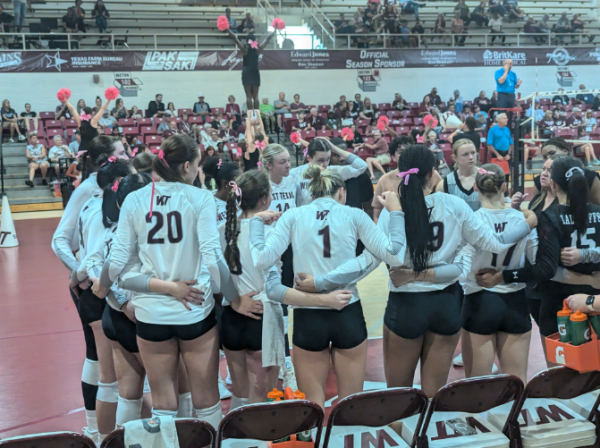OP/ED Sports and how it has been gendered
Several centuries ago, sports was primarily known as the forte of men, according to Britannica. Women in Ancient Greece were regarded as too weak to do anything physical. In the 21st century, much progress has been made in justifying the inclusion of women in sports. For many college students, sports is a way to showcase what they can do. Others also use it as a way of escape- to get their mind off things they consider unpleasant.
For West Texas A&M University Athletics, the only games that seem gender-segregated are volleyball and softball, played exclusively by the Lady Buffs, and baseball, played exclusively by the Buffs. Collectively, the female teams win as many games and events in comparison to the male teams, if not more.
Some games or sports events are mostly stereotyped. Men who play volleyball in the United States are perceived as being too feminine. Women who play soccer or football are mostly perceived as too aggressive. There are also fewer men who are gymnasts because gymnastics has been classified as a “girl sport.”
Last year, the women’s basketball teams in the National Collegiate Athletic Association (NCAA) complained of how more money and facilities were allocated to the men’s gymnasium, compared to what was given to the women’s teams during March Madness. In retrospect, the treatments of the two genders in sports have not been the same. The situation made news all over the United States and beyond, with people calling for the heads of the authorities in charge to act fairly.
Equality has never been an easy feat for the world to conquer, especially when the patriarchal system was stronger than it is today. Even in today’s world where much education has been done, a woman still earns 75 cents to each dollar a male makes. Over the years, the United States Women’s National Team (USWNT) has been on a strong advocacy for equality in pay for female athletes, considering that the women’s soccer team ropes in more trophies and wins compared to the men’s team.
The NCAA is currently debating whether to include transgender athletes into their lineups and official games. This topic is quite divided, as some are of the view that it is cheating to those who are biologically male or female, who have not undergone biological gender transitioning. Aside from the politics involved in this debate, is it a matter of ethics or tradition?
Apart from the many wishes and cans and ifs that we mostly dialogue, can we, as humans, begin to change the culture of sports through educating the next generation? How do we teach our children from infancy that sports should be about what physical venture one personally enjoys being involved in? This contrasts with the current culture of sports, which causes children to fear what society thinks of their sports preferences. Maybe, just maybe, we can all do better.













